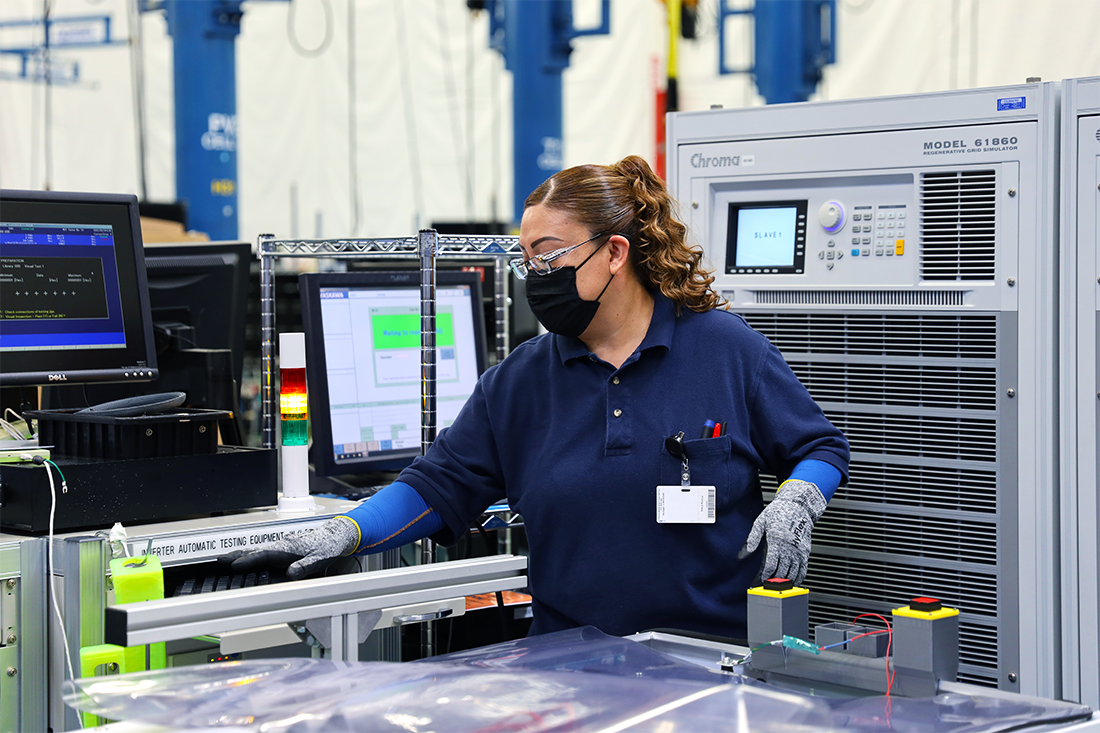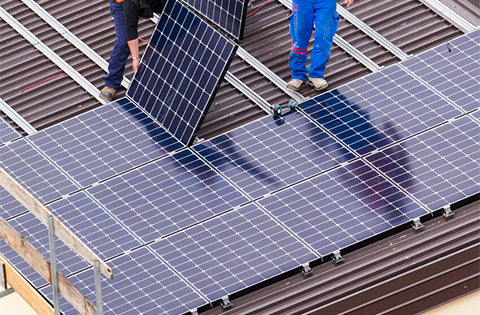Many solar owners installed a residential solar system always wonder if the solar power can help them run all their home appliances. Well, it may vary from different situations. Solar energy is currently one of the world`s most popular forms of renewable energy, comprehending implementation in various sectors. As a result, it is only natural for the domestic sector to adapt solar energy to power much-needed appliances present in their homes, like LED lights, refrigerators, etc., and residential buildings. Therefore, this article will outline the homeowner who wishes to introduce solar power into their everyday lives.
How do appliances run on solar energy?
The basic idea involves converting solar energy into electrical energy, which is then supplied to an appliance. However, this process of conversion can be complex and requires different components. These components include:
Photo-voltaic cell:
The photo-voltaic cell is essentially the solar panel commonly seen on the roofs of buildings capable of capturing solar energy. The actual conversion of solar energy into electrical energy takes place in this cell. The energy coming from the sun creates a potential difference within the cell that subsequently creates a current.
Battery bank:
The above photo-voltaic systems can only create current but cannot store it. That is, they only power appliances if the panels are exposed to sunlight. Therefore, what happens when the sun sets? In the absence of sunlight, the current will come from a battery connected to the solar panel. This allows appliances to function even at night.
Charge controller:
Charge controllers play two very important roles in the conversion process. Firstly, it stabilizes the output from the panels by eliminating the fluctuations that occur in sunlight. If the charge controllers are not present, these fluctuations could affect the batteries. Secondly, the charge controllers will also ensure that the input to the battery is turned off when the batteries are full.
Inverter:
A major problem that arises with solar energy is the conversion of direct current to alternating current. This conversion has to happen because the current flows from the panels are direct current while the appliances require alternating current to function. Therefore, the inverter connected to both the batteries and the charge controller will provide the appliances with alternating current.
Plugs:
Inverters have a certain limit for the amount of voltage that they can handle. In most cases, inverters can handle around 120 volts. This is enough for smaller appliances and can be plugged in without a problem. However, a more powerful appliance will require a higher voltage and, therefore, a larger inverter.
How many solar panels do I need to run my appliances?
Using solar energy to power a home will require the home to have a home solar system. A home solar system refers to a collection of solar panels, the photo-voltaic system needed to produce current. The number of solar panels present in a solar system can depend on the number of appliances that the home has and the duration of sunlight that the panels are exposed to on a given day. Additionally, a homeowner will also have to consider the cost of installing solar panels and the area available for them.
In general, most solar panels are capable of producing 300 watts of power in one hour. An appliance that requires the same power to function for an hour will need only one solar panel. In this way, one will have to determine how much each appliance requires for one hour of functioning and install an equal number of solar panels.
However, getting a home solar system will mean choosing between two types of systems. This includes:
Grid system:
This system does not use a series of batteries but will use an inverter. The home solar system is connected to a grid that will provide electricity to the home when needed. However, the excess electric energy is stored in the grid for later use. For this reason, there is no need for a battery.
This home solar system will contain all components like batteries, inverters, and photo-voltaic panels. There is no main grid to which the system is connected. You will store all the extra energy in these batteries, and this extra energy will convert the current from batteries to alternating current with the help of the inverter.
What appliances can run on solar power?
There are several appliances, both small and big, that can run on solar energy. These include appliances like:
- Lighting devices like light bulbs and tube lights
- Televisions
- Laptops and Computers
- Microwaves
And other smaller miscellaneous devices like toasters and more. Power through solar for appliances like refrigerators, washing machines, and air conditioners may be harder to obtain since these devices require more power. However, it is still not impossible to power these appliances as well on solar energy. To efficiently provide electricity for more power-hungry appliances, homeowners can use the following tips:
- Hybrid systems:
A hybrid system refers to the home solar system containing a solar grid system connected to batteries and inverters. This can help a homeowner get the maximum power from solar for appliances.
- Energy consumption calculation:
Deciding the number of solar panels that need to be installed relies heavily on the amount of energy consumed while running all the appliances in the home. Therefore, this consumption has to be calculated over a week and then the number of solar panels capable of providing this need.
- Eliminate vampire appliances:
Vampire appliances refer to the devices that use up energy even when they are turned "off". These appliances include computers, routers along with surround sound systems, and cable or satellite set-top boxes. The best way to eliminate the effect of these devices is to unplug them when they are not in use.
SOLARPARTS is a professional solar panel manufacturer, and our products cover solar panels, solar chargers, portable solar bags, off/on grid solar system and balcony solar system, etc. Keep following with SOLARPARTS to know more product information, or contact us today!
Twitter: Solarparts Instagram: Solarparts
Tumblr: Solarparts Pinterest: Solarparts
Facebook: Shenzhen Solarparts Inc
Email address: Philip@isolarparts.com
Homepage: www.isolarparts.com





